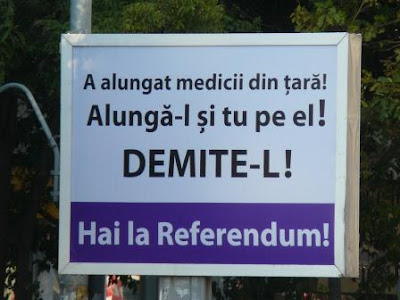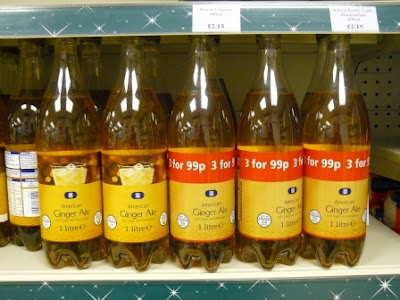Oricâte argumente ar căuta, şlefui şi pune în vitrină oricare dintre tabere – în favoarea acestui fals erou al democraţiei, Traian Băsescu, sau împotriva lui – ele nu mai contează în aceste zile.
A încerca să convingi pe cineva care îl vrea dus pe Dictachior ori pe un băsist portocaliu şi în cerul gurii de valabilitatea a măcar 5% dintre ideile susţinute de cealaltă parte are tot atâtea şanse de izbândă precum a câştiga Marele Premiu la Loto 6 din 49.
Atât cei care îl vor plecat (eventual şi la puşcărie) pe Traian Băsescu, cât şi cei care îl vor înapoi la Cotroceni au cam înţeles că ora dezbaterilor a trecut. De fapt, cu valul de isterie băsistă nici nu s-ar fi putut discuta nimic.
Comparând Parlamentul României cu Parlamentul Republicii de la Weimar, care a favorizat ascensiunea lui Adolf Hitler, şi trimiţând şarje de delaţiuni la Bruxelles, oamenii preşedintelui cred că dreptatea este de partea lor.
Numai că Dreptatea nu a fost niciodată de partea mârlăniei, aroganţei, şantajului, violenţei de limbaj, ipocriziei, minciunilor neruşinate, furtişagului ridicat la nivel de excelenţă şi altor metehne care au caracterizat cei ultimii opt ani de domnie băsistă.
Cei care urlă că înlăturarea idolului lor este ‘lovitură de stat’ sau ‘atac asupra instituţiilor statului’ refuză să vadă cât de găunos este personajul pe care l-au pus pe un piedestal al democraţiei.
Băsescu are de dat răspunsuri despre dispariţia flotei comerciale a României, despre aducerea trenurilor cu mineri în iunie 1990, despre mascarada răpirii jurnaliştilor români în Irak (2005) şi despre punerea ţării pe masa de disecţie a FMI (2009).
Poate mai mult decât orice, el trebuie să răspundă despre ce s-a ales de promisiunile sale de erou al luptei anticorupţie din 2004. Cum se face de caracatiţa roşie, atribuită lui Adrian Năstase, a fost înlocuită de o mai lacomă şi mai neruşinată caracatiţă portocalie?
Dincolo de propaganda auto-intitulaţilor inteligenţi, democraţi, europeni etc, există destule argumente pentru a susţine că DA, Băsescu trebuie să plece – citiţi aici, aici, aici, aici, aici, aici, aici, aici, aici, aici, aici, aici, aici sau aici.
Doar că nu mai este timp de argumente, în aceste ultime zile dintr-un război al nervilor. Este o încleştare nebună care poate fi numai preludiul unui şi mai înverşunat război dacă Băsescu revine în funcţie. Şi n-o mai poate face decât la masa verde.
Fiecare parte pune gaz pe foc, încercând să aţâţe suficientă ură. Pentru ca cei care îl urăsc pe Băsescu să se mobilizeze la urne, în ciuda caniculei şi a perioadei concediilor. Sau, de cealaltă parte, pentru ca susţinătorii lui să stea departe de secţiile de votare.
Strâmbând din nas în faţa duhorilor democraţiei – pe care şi-or fi închipuind-o vreo zeiţă fără de cusur?! – unii simandicoşi sceptici zic că nimic bun n-a ieşit din ură şi deplâng faptul că românii iarăşi votează (sau nu o fac) mânaţi de ură.
Dar n-ar fi cazul să ne simţim ruşinaţi de aşa ceva. Dacă acceptăm premisa că mobilizarea masivă la vot este posibilă doar ca urmare a mobilizării urii, ar reieşi că mai nimic de la Revoluţia franceză încoace nu s-a clădit pe altceva decât pe ură.
Toate idealurile măreţe şi principiile generoase au fost scrise după ce au curs valuri de sânge şi s-au adunat stive de capete tăiate. Or, acum nici vorbă de aşa ceva. Românii vor doar să scape de Băsescu, cum au vrut să scape şi de Ceauşescu. Dar nu cu gloanţe, ci cu voturi.
Nici în 1989 nu şi-o fi dorit nimeni din România vărsare de sânge şi asasinarea dictatorului în ziua de Crăciun. Dar au vrut alţii în locul nostru, orchestrând acel proces stalinist. Acum, de ce să ni-l vrea alţii pe Băsescu?
Să fi avut românii şansa de a-l da jos pe Carol al II-lea încă din primăvara anului 1940, poate că acea tragică vară din istoria României ar fi arătat altfel. Poate că încă nu era prea târziu ca pierderile să fi fost mai mici.
Să fi avut şansa de a-l trimite pe Ceauşescu la o blândă puşcărie (ca pe Todor Jivkov) sau într-un autoimpus exil (ca pe Erich Honecker), poate că şi istoria ultimilor 23 de ani ar fi fost mai blândă cu noi.
A-l da pe Băsescu afară de la Cotroceni nu înseamnă că, automat, în locul regimului său fals proslăvit drept unul justiţiar (?!) se va instala un regim injust (?!) controlat de plagiatorul Victor Ponta, cum urlă vuvuzelele portocalii.
Băsescu nu este întruchiparea justiţiei imparţiale, nici garantul democraţiei funcţionale şi nici catalizatorul unei economii prospere. Fără el, poate că ceva-ceva s-ar putea să fie mai bine; dar cu el – sigur nimic nu poate să fie bine.
Cu Băsescu – nu avem nicio libertate de mişcare la rangul de al şaptelea stat ca mărime în UE, ci suntem slugoi, arvuniţi deja pentru a face parte dintr-o Eurozonă, de unde unii (Grecia) nu ştiu cum să scape, iar alţii se felicită că n-au intrat (Suedia).
Poate că aceasta este democraţia şi nimic mai mult – un carusel al urii, în care nu suim cu toţii, odată la alegerile la termen sau mai des (în caz de referendum). Ne învârtim ce ne învârtim, ameţim şi, la finalul cursei, îl aruncăm peste bord pe indezirabili.
Nu tăiem capete, nu exilăm pe nimeni, ci doar ne bucurăm că îi dăm afară din terenul de joc pe cei care ne-au devenit nesuferiţi şi le râdem în nas susţinătorilor lor, dintre care destui au profitat din plin cât au fost ai lor la putere.
Este o bucurie primitivă, care nu poate aduce nimănui un plus de fericire, nici nu ne abslovă de vinovăţii personale, cum niciun ţap ispăşitor nu o poate face. Atâta ne poate dărui democraţia, un rău fără de care ne-ar putea fi şi mai rău.
[Pentru toate postările de pe acest blog mergi la/For all the posts on this blog go to: Contents/Cuprins]






























